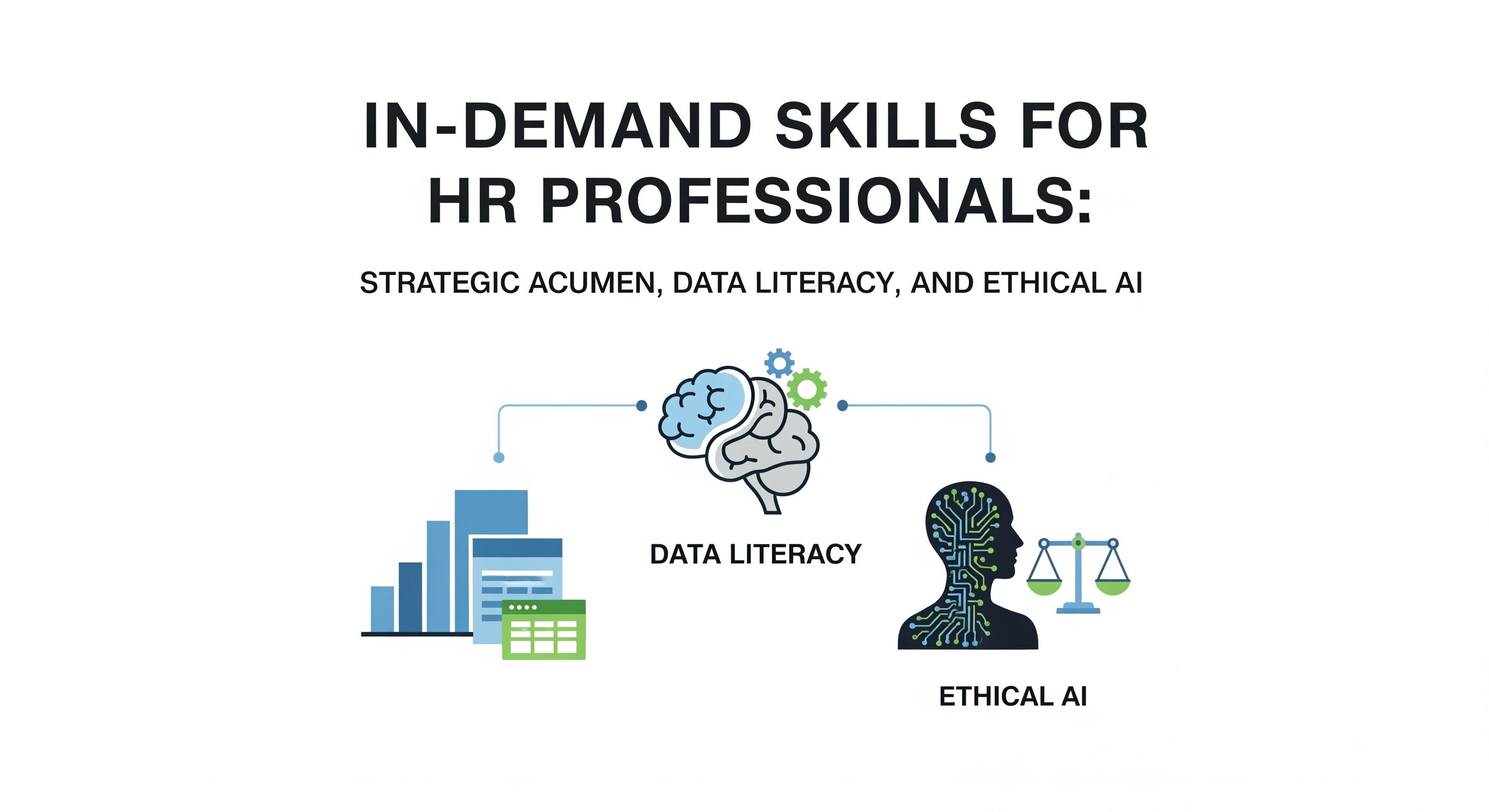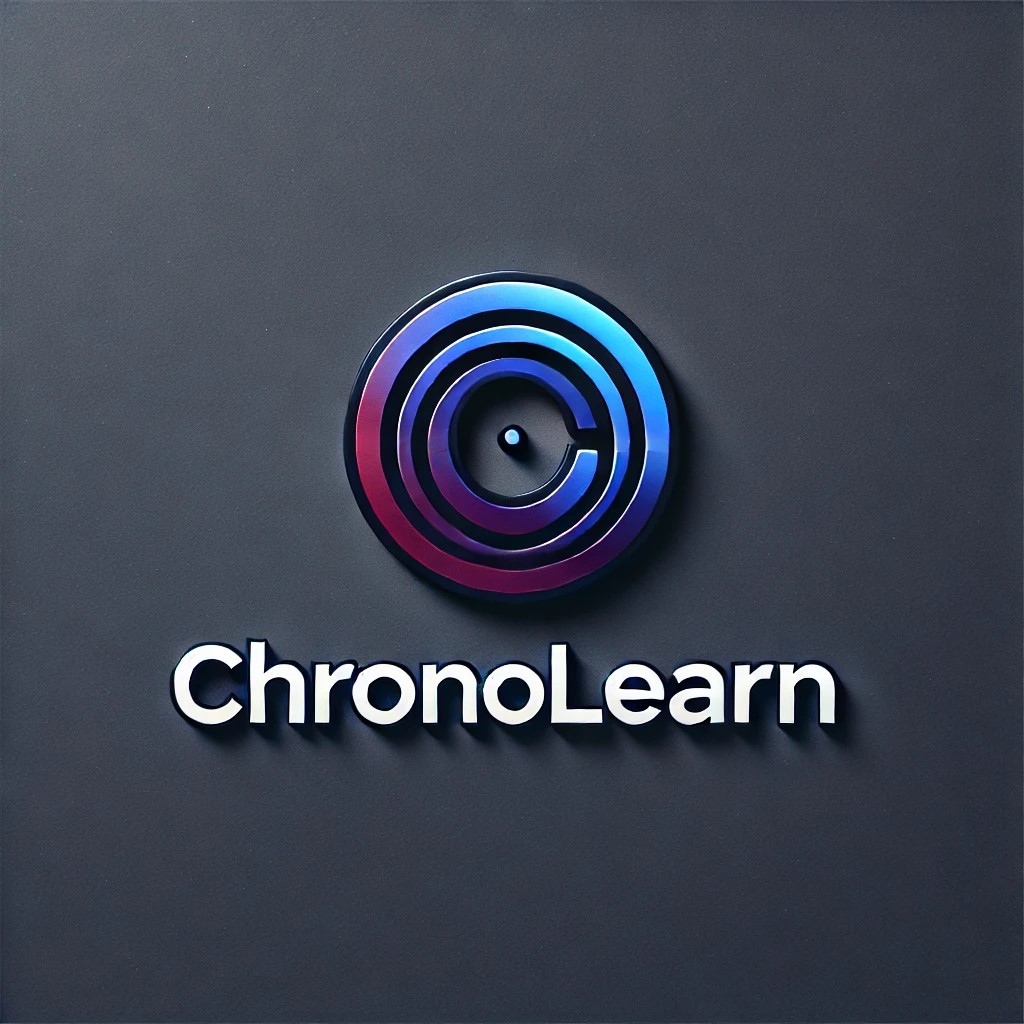
In-Demand Skills for HR Professionals: Strategic Acumen, Data Literacy, and Ethical AI
Introduction
The role of Human Resources (HR) has transformed dramatically over the past decade. Once viewed primarily as an administrative function, HR today has become a strategic partner in business growth, digital transformation, and workforce resilience. As organizations adopt automation, data-driven strategies, and artificial intelligence (AI), HR professionals must adapt by developing new skills that go far beyond traditional HR practices.
In 2025, three skills stand out as mission-critical for HR professionals:
-
Strategic Acumen – aligning HR initiatives with business outcomes
-
Data Literacy – making informed workforce decisions using analytics
-
Ethical AI Expertise – managing AI adoption responsibly and inclusively
In this blog, we’ll dive deep into these in-demand HR skills, why they matter, and how professionals can develop them.
1. Strategic Acumen: HR as a Business Partner What is Strategic Acumen?
Strategic acumen refers to the ability of HR leaders to connect people strategies with organizational goals. In modern enterprises, HR is no longer just about hiring and compliance—it’s about driving growth, shaping culture, and enabling workforce agility.
Why it Matters in 2025
-
Changing workforce models (hybrid work, gig economy, global talent pools) require HR to rethink policies.
-
Business alignment ensures HR is not reactive but proactive in addressing skill shortages, leadership development, and employee engagement.
-
Talent retention is now a competitive advantage, making HR’s strategic role critical for organizational sustainability.
How to Build Strategic Acumen
-
Partner with C-suite executives to design workforce strategies aligned with company vision.
-
Upskill in business strategy, finance, and organizational development.
-
Use scenario planning to anticipate workforce challenges (AI disruption, market downturns, regulatory shifts).
-
Leverage HR tech platforms to track performance metrics tied to business outcomes.
( VIsit Skill up now : Strategic Human Resource Management)
2. Data Literacy: Turning Workforce Data into Actionable Insights What is Data Literacy for HR?
Data literacy means the ability to understand, interpret, and apply data in HR decision-making. With organizations generating vast amounts of employee and workforce data, HR professionals who lack data literacy risk falling behind.
Why it Matters in 2025
-
People analytics helps predict attrition, optimize hiring, and improve employee engagement.
-
Data-driven HR builds credibility with business leaders by presenting measurable insights instead of opinions.
-
Workforce forecasting helps plan for skill shortages, reskilling, and succession planning.
How to Build Data Literacy in HR
-
Learn the basics of HR analytics tools like SAP SuccessFactors, Workday, Tableau, or Power BI.
-
Understand key HR metrics (turnover rate, cost-per-hire, time-to-productivity, employee NPS).
-
Adopt predictive analytics to anticipate workforce needs.
-
Collaborate with data teams to apply AI/ML models in HR workflows.
🔗 (Explore more: Data Analytics in HR: From Metrics to Insights)
3. Ethical AI: Building Trust in Technology-Driven HR What is Ethical AI in HR?
AI is now embedded in recruitment, performance management, and employee engagement platforms. However, unethical use of AI (bias in hiring algorithms, privacy violations, lack of transparency) can create risks for organizations. Ethical AI involves responsible implementation that ensures fairness, accountability, and inclusivity.
Why Ethical AI is a Must-Have HR Skill
-
Bias-free hiring: AI can unintentionally discriminate if trained on biased data.
-
Employee trust: Transparency in how AI-driven decisions are made builds credibility.
-
Compliance: Governments are introducing stricter AI governance regulations in 2025.
-
Sustainability & ESG goals: Ethical AI aligns with corporate values and brand reputation.
How HR Professionals Can Champion Ethical AI
-
Advocate for explainable AI in recruitment and workforce management systems.
-
Collaborate with IT and legal teams to ensure data privacy and compliance.
-
Conduct AI audits to identify algorithmic bias.
-
Stay updated with AI governance frameworks like EU AI Act and emerging U.S./India AI policies.
(Also read: AI in HR: Benefits, Risks, and Future Outlook)
Other Trending Skills HR Professionals Need in 2025
While strategic acumen, data literacy, and ethical AI are the pillars of modern HR, other trending skills include:
-
Change Management: Leading organizations through transformation initiatives.
-
Employee Experience Design: Crafting meaningful journeys that improve retention.
-
Diversity, Equity & Inclusion (DEI) Expertise: Building fair and inclusive workplaces.
-
Digital HR Tools Proficiency: Mastering cloud HRMS, automation platforms, and AI-driven HR solutions.
-
Emotional Intelligence: Managing teams with empathy in hybrid and remote settings.
Conclusion
The future of HR is strategic, data-driven, and technology-powered. To stay relevant, HR professionals must cultivate strategic acumen, data literacy, and ethical AI expertise, alongside other emerging skills.
Organizations that invest in upskilling their HR teams will enjoy stronger talent retention, improved workforce planning, and ethical adoption of AI. For HR professionals, acquiring these skills is no longer optional—it’s the key to career growth and influence in the digital-first workplace.
(Further reading: Future of Work: Skills Every Professional Needs in 2025






